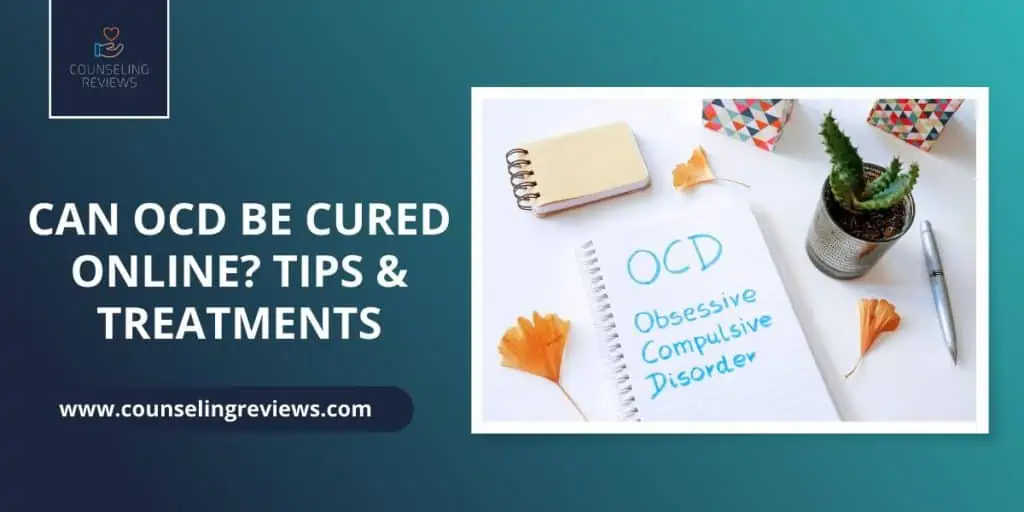Nowadays, everyone is experiencing stress from time to time. Stressful events can exacerbate illnesses such as (OCD) obsessive-compulsive disorder, cardiovascular disease, major depression, and diabetes. Not everyone who suffers from stress will become ill or experience OCD symptoms.
Research shows that one in 50 Americans has a form of obsessive-compulsive disorder, according to health statistics. People feel lonely from their friends and families, there is a lot of support available for those helping a family member with OCD. The knowledge of OCD is one of the main keys to dealing with mental illness, and it is the fastest way to a better quality of life. This article will allow you to know about OCD and its treatment.
Obsessive-Compulsive Disorder (OCD):
OCD is a mental disorder characterized by intrusive thoughts and disruptive coping mechanisms that diminish the quality of life. It is technically a brain disorder, it is usually considered a mental illness. Most people describe OCD as a mental hiccup because they find that their brains get fixated on a single event.
Manifestation and severity of symptoms vary between diagnosed people and these factors change over time. There are many ways to address OCD. People with OCD can be completely cured after treatment but still have OCD, yet they can enjoy significant relief from their symptoms. OCD treatments typically employ both lifestyle changes and medication.
Signs of OCD:
OCD has two parts: obsession and compulsions. These signs deal with obsessions and compulsory acts.
Obsession:
People dealing with OCD may obsess over dirt, germs, and other contaminants. They might think about harming themselves or others. Some sufferers feel they must confess everything they do or think. People with OCD often have an overwhelming need to keep things in the right places.
Compulsion:
Compulsive opening of a door repeatedly and hand-washing are signs of OCD. People experiencing OCD have these compulsions in life, such as checking lights, arranging things in sets, counting items, repeating thoughts several times, and praying. These demonstrations are fine in moderation as it is their repetitive nature that makes these compulsions signs of OCD.
Diagnosis and Prescribed Treatment:
Many people express obsessive-compulsive behavior and other symptoms without actually having it. Other symptoms that present similar signs are temporary emotional strain or other mental health concerns. The initial step for seeking OCD treatment is to look for a licensed professional. It will establish a foundation for treatment, as it helps individuals accept the conditions so that they can start moving forward. Medication can manage severe symptoms but is generally not a long-term solution.
There are effective treatments available, and while every treatment does not work for every person, most people can get significant relief from their symptoms using a combination of medication and psychotherapy. There is experimental work going on in new therapies such as deep brain stimulation and repetitive transcranial magnetic stimulation for people who are unable to find relief. There are many helpful strategies that you can use to cope with OCD.
A survey study suggests that 32-70% of people with OCD experience symptoms of remission which suggests that recovery is an achievable goal for some people with the condition. There are different approaches used in the treatment of OCD which includes;
Cognitive Therapy:
There are many methodical approaches to help patients gain greater awareness of their mental health processes. As a practical strategy, CBT is the most effective tool psychologists have to help their patients manage OCD. This therapy helps build mindfulness of thoughts and feelings resulting from trigger scenarios like phobia or social anxiety.
According to the Anxiety and Depression Association of America. It motivates patients to question the strong feelings of fear, guilt when they arise. These feelings are natural but can be disruptive and distressing when experienced over prolonged periods.
Medication Therapy:
Many medications have been approved by the Food and Drug Administration (FDA) for the treatment of OCD. Most of these drugs belong to antidepressants. These medications are effective in treating anxiety disorders. These drugs work on increasing the amount of serotonin that is available within the brain.
If you have tried OCD medication and had no success, augmentation therapy can help. This therapy is being used to improve the odds of relieving OCD symptoms when treating OCD with medication. Augmentation therapy involves using combinations of drugs for maximum effect.
Things to Avoid
You can effectively treat OCD, there is a clear list that experts insist the sufferer should avoid. These parameters can make recovery much harder. Those working to improve their OCD condition should avoid the following;
- An excessive amount of time spent devoted and highly repetitive behavior.
- Unsupportive friends or family or negative relationship
- Avoidance of the treatment of other health issues.
- Poor quality of life.
Tips for Families:
Families and friends can play a vital role in overcoming OCD in their loved ones. They can offer support as any other available out there. Some of the important tips for families are;
- Be supportive and avoid negative judgment
- Offer an open line of communication
- Ask if there is anything supportive that can be done to help the situation.
- Never do such things to encourage unwanted OCD behavior
- Find ways to cope with stress.
Wrapping Up:
OCD usually requires consulting with a qualified mental health professional. It can be cured through the help of a medical professional and with some work on the part of the sufferer. Those who have cured OCD have experienced it and are much more likely to experience it again, and as such, must take great precautions to avoid risk factors and other factors in the future. There are many resources available to seek more information and help with OCD.





